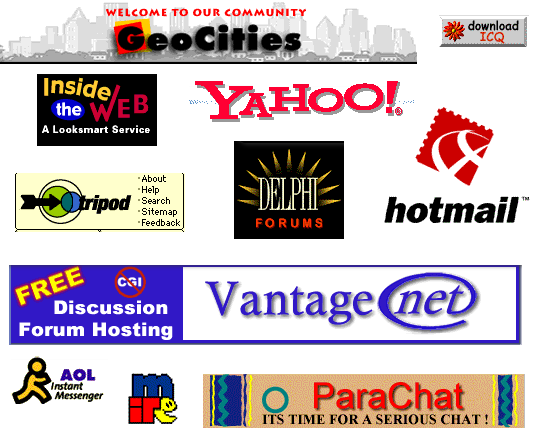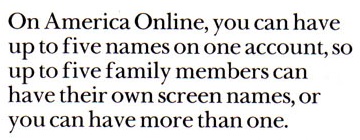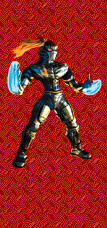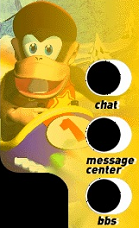On a bit of a lark, I posted an article last week about some of my odd experiences as a kid on the internet in the 90s. That got me listening to a bunch of music that has no obvious connection to the things I wrote about. My metal choices became more industrial. I fired up the Lost in Translation soundtrack for the first time in ages. I fell in love with vaporwave’s sardonic spin on muzak and smooth jazz… Hey, this sounds like an excuse to post a music series!
90s internet was obsessed with fantasy and science fiction. “Nerds” were more likely to be online. (My family got dial-up because my mother was a computer programmer.) Free online gaming was dominated by MUDs and forum RPGs, as they were well suited for text-based environments and stemmed from a long tradition. Most of all, it was the easiest place for that demographic to congregate. (Why do we have Sports Bars but not Dungeon Masters’ Taverns?) If you came to the internet enjoying console RPGs, you might well leave loving anime and Dungeons & Dragons, too, and sharing an odd obsession with that island off the east coast of Asia that gave us so much of it. Japan was an exotic world full of technologically advanced cities, as I imagined it, and its number one export for me was high-tech fiction.
That is how I came to engage futuristic universes like Akira and Ghost in the Shell. Japan brought cyberpunk into the mainstream for my generation. (It was years before I watched Blade Runner.) The internet was the new frontier of technology, so the genre sort of resonated with the medium through which I encountered it. Ghost in the Shell in particular asked a lot of relevant questions regarding how technology impacted identity. On the internet, anonymity was a sort of virtue, and that always fascinated me. I also saw, as time went by, a lot of commonalities between the internet and cyberpunk’s dystopian societies. Corporate monopolies replaced niche vendors. Advertising expanded wildly, still all in-your-face pop-up adds pushing pornography and all-you-can-eat, 0%-down, free trial chances to become an instant winner. Forums became overcrowded, scaling up from hundreds of active users to tens of thousands. Screen names ceased to provide even temporary identification as people no longer bothered looking at them. Copycat conformity and superficial cheap thrills dominated where people had once engaged each other with thought and imagination.
In both cyberpunk and the internet, you had an acknowledged gap between the corporate world and the masses. In Final Fantasy VII, for instance, Midgar’s dark, towering inner city emitted a filth of neon commercial sleaze and ill-earned luxury that opposed the sunshine and suffering warmth of its dilapidated ghettos. This disparity was clear, both to the player and to Midgar’s fictional inhabitants. The antagonists were balding, broad-wasted businessmen and corporate gangsters. The heroes toppled the system through sabotage, creating a ripple effect that rocked the masses and–not so much in FF7, but definitely elsewhere–turned them against their corporate overlords. The fact that capitalism felt evil or sleazy, both online and in the fiction, proved awareness of the gap. If the system was working properly, the masses would willingly accept their position and not eye commercialism warily or respond to tremors beneath. There would be no vulnerability–no means to revolution–and subsequently, in a lot of these stories, nothing to drive the plot forward.
The gap emerged in fiction because it made for an interesting story. It emerged in real life because the internet simply hadn’t been reigned in yet. Corporations were still scrambling to keep up with rapidly changing demands emanating from an unregulated hive mind. In both cases, the appeal was a sense of empowerment. Anonymity within an unstable system enabled anyone, theoretically, to mastermind changes in behavior of the masses and then slip back into the shadows. It was a utopian dystopia. It was too easy.
Today’s social media, integrated subliminal advertising, and tailor-made instant-gratification entertainment indicate a highly functional, invulnerable corporate society. The internet is a bleak, soulless place where people narrate their artificial lives to the wind, proudly displaying every ounce of their shallow identities. You might grasp the banality for a moment and try to spread the word, but open ears are hard to come by, and before you seek them you just have to watch this Youtube video about the 10 craziest moments in… something. C’est la vie.
But that is why internet and the 90s makes me reflect nostalgically on sweaty used car dealers in crooked toupees; Tokyo as an exotic, futuristic world; Groomed corporate elites snorting cocaine on their private jets; Sleazy, shameless advertising; Revolutions begun by untraceable, nameless figures in archaic chatrooms; The machine consuming itself and collapsing into anarchy; Most of all, the freedom to roam a vast, incomprehensible urban landscape without consequence.

Maserati are a post-rock band from the music capital of the southeast: Athens, Georgia. “Inventions” appears on their 2007 release, Inventions for the New Season (which I always thought was a really awkward title). Their line-up at the time included the late Jerry Fuchs, who was involved in a lot of significant acts before his tragic death: !!!, MSTRKRFT, LCD Soundsystem.
This song found its way into my mix as a result of my brief foray into RPGMaker. I got it in my head to make a cyberpunk RPG based loosely around a collaborative story that I took part in back on the Nintendo.com forums in ’98. Futuristic tile sets were pretty hard to come by, and I turned to music to set the tone of the game. I put “Inventions” to work when the player finished up the introduction sequence and became free to explore. The song captured for me the feeling of walking along the massive streets of a futuristic city in the dead of night.








